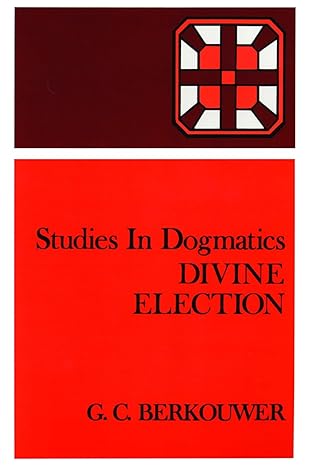A Brief Book Summary from Books At a Glance
by Steve West
Table of Contents
1 The Boundaries of Reflection
2 The Doctrine of Election in Historical Perspective
3 Election and Arbitrariness
4 Election and the Hiddenness of God
5 Election in Christ
6 Election and Rejection
7 Election and the Preaching of the Gospel
8 Supra- and Infralapsarianism
9 Election and the Certainty of Salvation
10 The Great Misconception
Summary
Chapter 1: The Boundaries of Reflection
Errors concerning the doctrine of election can have all kinds of theoretical consequences, as well as cause harm in one’s religious life. We need to respectfully approach the doctrine, recognizing boundaries and mystery. Many objections to the doctrine of election stem from a belief in free will. Many objections flow from resistance to the scandal of the gospel, and from an unwillingness to recognize human inability. Election and assurance are not enemies, and it is vital that our understanding of election does not lead to uncertainty of salvation. On the contrary, election is the heart of the church, and in Scripture it is always a cause for joy and praise. We must discuss election in the boundaries of the gospel and not in categories of our own speculation about a hidden purpose in God. Since the doctrine is revealed in Scripture, it must not be shunned, but it must also not be taken out of the bounds laid down for us. Even recognizing this, however, does not settle every issue, since we need to understand what can and cannot be properly deduced from scriptural premises. Sometimes a proper understanding of a doctrine can be sharpened by seeing what consequences do not follow from the premises.
The Calvinist reply to the Remonstrants refused to move into determinism, and likewise, it rejected the horrible consequences the Remonstrants alleged followed from the doctrine. Vain speculation must be avoided, and neither God’s sovereignty nor human responsibility must be rejected on the basis of the other. God’s revelation provides the boundaries for our thinking and reflection on this doctrine, although this formal principle does not settle every question, interpretation, or dispute about what the precise boundary lines happen to be. Both Luther and Calvin warned against trespassing beyond Christological boundaries in election, and it is the relation to Christology that allows us to preach election with joy. Election is not an abstract reality but flows from the Father in connection with Christ; it is received by faith. . . .
[To continue reading this summary, please see below....]The remainder of this article is premium content. Become a member to continue reading.
Already have an account? Sign In
